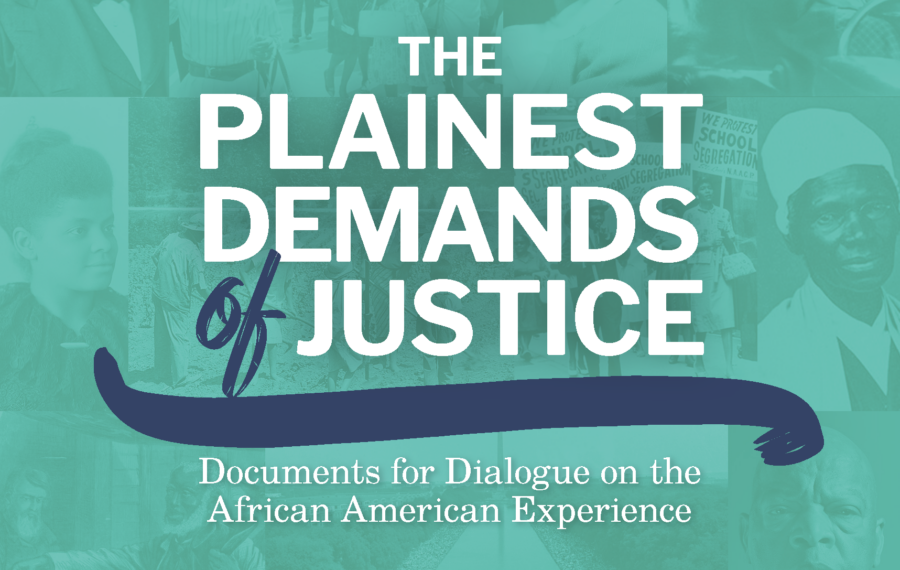Introducing BRI's newest curricular resource
The Plainest Demands of Justice: Documents for Dialogue on the African American Experience
Join the Community!
Explore the Resource
Explore the full resource today! Sign up for the community!
Frequently Asked Questions
“The Plainest Demands of Justice” is divided into three parts:
- A foundational primer on natural rights and the promise of liberty and equality in the Founding documents.
- Three chronological primary source document sets covering the colonial era to the present day.
- A final capstone project where students research and present on how the work to ensure a society faithful to the ideals of the Declaration of Independence continues.
“The Plainest Demands of Justice” is a primary source collection and discussion based lessons. The primary sources have been curated by the Bill of Rights Institute staff and the discussion based lessons have been reviewed by scholars with expertise in political science, history, and education. In addition, experienced history and government teachers have piloted and reviewed the resource.
“The Plainest Demands of Justice” is a comprehensive, primary source driven examination of African American history that uses the principles of the Declaration of Independence as its foundation. Over 90 primary sources allow students to consider the complex and painstaking work to ensure a society faithful to Founding principles of liberty, equality, and justice.
This resource is entirely free and will be available to any educator on mybri.org.
Sign Up to Receive Quote Posters!
“Students were able to reflect upon and think critically about liberty, equality, justice, and consent. The Declaration of Independence was particularly helpful for my students, who were 8th graders, not 9th. They enjoyed the reference to Mum Bett, who we had discussed earlier in the year. There was a variety of sources to allow them to see the big picture.” ~ Grace S., Teacher from Utah
“The final analysis helped me better understand the different ways that people tried to challenge slavery and point out the conflict between the founding principles and slavery. This helped me understand the rising conflicts over slavery, even during the founding period.” ~ Pilot Student
”I really liked the way that the documents guided students toward the complex differences between different leaders from different geographic areas. In a word, I love the complexity.” ~ Michael S., Teacher from Iowa